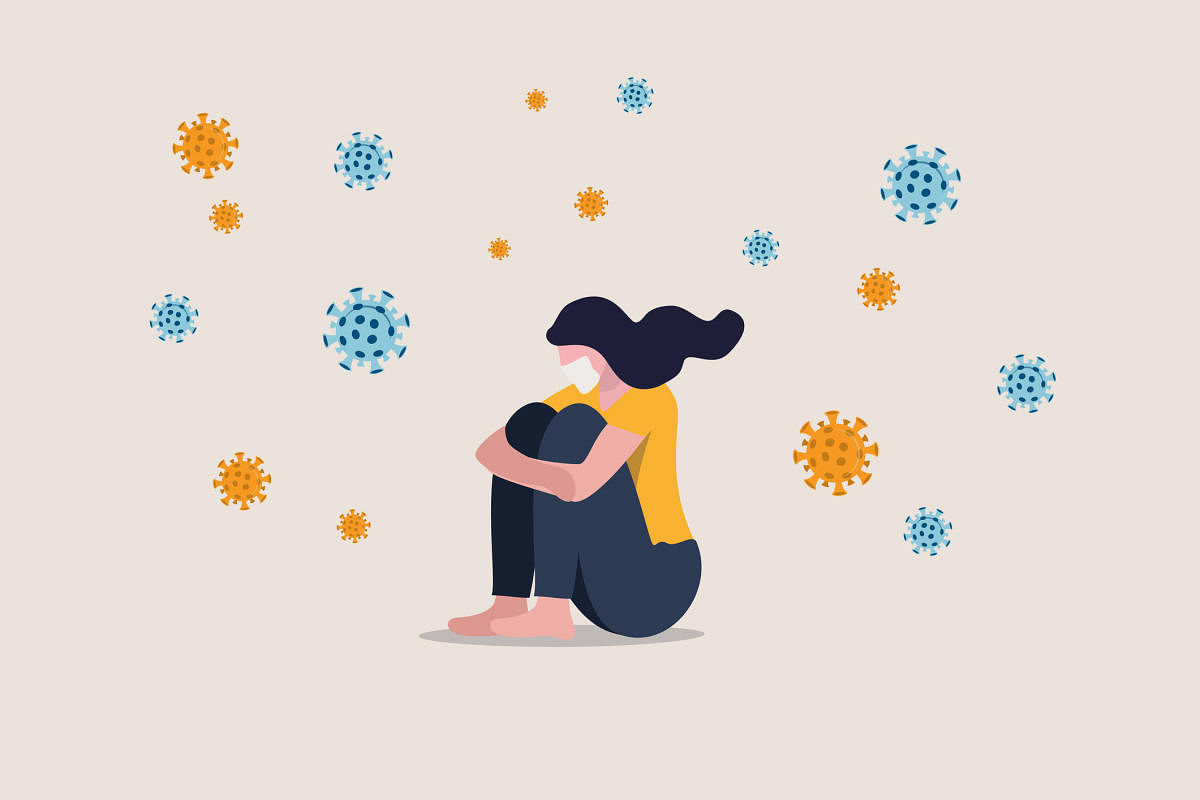It came, it saw, but I didn’t let it conquer me. The enemy slipped in insidiously. The first day, I had a crushing headache, which disappeared without medication and this was followed by chills at night. At that stage, there was no fever. Two days later, I developed a slight cough that was more like clearing the throat and I began feeling dull and listless. Something seemed to have gone awry. The result of the Covid-19 test was positive. Although I was semi-prepared, it came as a shock to the system and my mind went into overdrive. The questions raged, “Where did I get this one-way ticket to hell? Do I have a future?”
Initially, as my oxygen saturation levels were under control and I did not feel breathless, I was advised to isolate myself at home with medication and online consultations with doctors. Gradually, the cough increased in intensity and a CT scan revealed that my condition required medical intervention. After that, we had to make quick decisions and take action. We were looking for hospitals closer home, but finally, I was admitted to a hospital relatively far from the area that we live in. In retrospect, that didn’t matter anyway since Covid-19 patients are kept in total isolation--once you’re in no one can come see you, you’re cut off from the rest of the world. It’s like being on an island from where there’s no escape. This brought back memories of a movie 'Escape from Alcatraz' about prisoners on an island.
Line of treatment
I had heard that Covid-19 wards are stark and bare and doctors keep their distance. This hospital was different, the dedicated doctors and efficient nurses made the situation bearable. Depending on the level of criticality and the individual needs of each patient a treatment plan was planned. I got the treatment that President Trump received--with five doses of Remdesivir for five days; supplemental oxygen and intravenously administered antibiotics, multivitamins and anticoagulant injections. I learnt and tried to understand new medical terms like D-dimer and why it is necessary to bring it under control. D-dimer is a fibrin degradation product that is often used to measure and assess clot formation. In Covid-19 patients, elevated D-dimer levels have been associated with disease severity and mortality trends. When I went in, the D-dimer levels were alarming but with medication, it gradually came down. Theories abound as to why D-dimer numbers escalate in Covid-19 patients. I was under the impression that perhaps I was constitutionally weak or had low immunity. A friend, however, told me that the tougher the body and mind, the greater is the fight against the virus. Hence my D-dimer numbers escalated in an inflammatory response. As the acute situation passed, the reactions reduced. A strange virus and stranger life lessons. After all, it is a defence mechanism – when there is a threat or attack to the body, every weapon springs into action and some of those may be too powerful for the body to handle and turn against the body.
To build up stamina, patients are asked to walk in the corridor in short stints, maintaining the mandatory distance and wearing masks. It was then that I’d see other patients and ask the nurses about them. Many were going through vexing situations. Two pregnant women had to undergo emergency C-sections as they had tested positive and all of us waited in the ward to find out if the babies were okay. Although one baby tested positive, both were going to be in incubators for a few months. What a time to be born! Families couldn’t visit and the new mothers were too fatigued to even take calls. Another young man broke his leg in an accident, his operation was delayed as he tested positive. There was an elderly man with Alzheimer’s disease who kept running out of his room at night screaming at the nurses for not giving him lunch. Every hospital is bound to have such cases and true-life stories.
Don’t believe all that you hear
There is so much blaring in the media about every aspect of the virus --causes, symptoms, care and later complications that it frightens the patient. Some patients become Google doctors themselves and tell the doctors what to do! In my mind, I was very clear that once I’ve entrusted myself to a doctor’s care, I must have complete confidence in the treatment plan and leave all decisions to the doctor. No doubts raised, no questions asked. Yet, the doctors were very gentle and explained the entire process. Patients were discouraged from taking calls because many well-wishers would unintentionally create anxiety by talking or sending clippings about some withdrawn drug or after-effects. As it is, the body is battling an unknown enemy and if the mind is also disturbed it becomes a traumatic experience.
Perhaps for the first time in this century, have so many people been feeling such intense anxiety related to one thing and the scars may never heal. The mind plays an important role in combating the virus. You can help your body in the following ways:
First, accept the situation you are in and change your attitude from “Why me? to “Okay, I’ve got it, I’ll fight it!”
This is a global pandemic and there is no stigma attached to contracting the virus.
However tired you are feeling, try to increase your physical activity as it will improve your mood, digestion, and sleep.
Stay connected to people who provide emotional and other support.
Have faith in the doctors --they are the Covid-19 warriors and are putting their lives at stake for yours.
After two weeks of top-of-the-line treatment and walking in the corridor, I came out smiling as I had won the battle royale.
